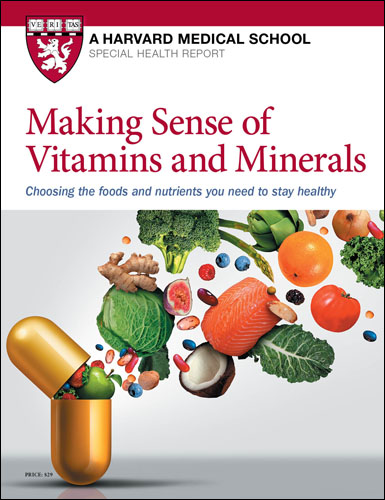Could too much calcium cause heart disease?
Get the calcium you need through dietary sources.

Oh, the ruckus a single study raised many years ago. A report about calcium and cardiovascular disease had people from San Diego to Caribou, Maine worriedly calling their doctors worried about calcium supplements.
Here's what prompted the concern: New Zealand researchers pooled the results of 11 randomized, controlled trials—the so-called gold standard of medical research—comparing the effects of calcium supplements and placebo on preventing osteoporosis or colon cancer. All the trials also had information on the volunteers' cardiovascular health. As reported online in the BMJ, more of the volunteers taking calcium had heart attacks, stroke, or died suddenly than did those taking the placebo. Media reports duly noted a 30% increased risk of cardiovascular disease with calcium supplements, which sounds scary. Another way to put the findings: 5.8% of those taking calcium had a cardiovascular event, compared with 5.5% of those taking placebo.
This publication is just another piece of the calcium puzzle. It isn't a practice changer. Some prior studies have shown that taking calcium supplements is linked to cardiovascular disease, others haven't.
The connection between calcium and cardiovascular disease is plausible. Calcium deposits are part of artery-clogging plaque. They also contribute to stiffening of the arteries and interfere with the action of heart valves. But whether there is a direct connection between the amount of calcium in the bloodstream (calcium supplements increase blood calcium levels) and cardiovascular problems isn't yet known.
An even bigger unanswered question is how much calcium the average person needs each day to keep bones strong and healthy. At one end of the spectrum, the World Health Organization says 400 to 500 milligrams (mg) of calcium a day are needed to prevent osteoporosis. At the other end, the official recommendation for Americans is 1,000 mg/day from ages 19 to 50 and 1,200 mg/day after that.
Given the uncertainty about the balance of benefits and risks of calcium supplements, it's probably best to get the calcium you need from dietary sources to keep your bones strong and prevent bone-thinning osteoporosis.
Don't just rely on calcium for bone health. You should also include:
- Weight-bearing exercise, like walking, running, tennis, and others, is one of the best things you can do for your bones.
- Getting enough vitamin D, from sun and supplements, is also good for bones and overall health. (As with everything, don't overdo it—no more than 10 to 15 minutes of sunshine without sunscreen, and/or 800 to 1,000 IU of a vitamin D supplement.)
- Vitamin K from green leafy vegetables such as spinach, Swiss chard, and kale is also important for bone health.
Image: sasimoto/Getty Images
Adapted from a Harvard Health Blog post by Patrick Skerrett.
About the Author

Harvard Health Publishing Staff
Disclaimer:
As a service to our readers, Harvard Health Publishing provides access to our library of archived content. Please note the date of last review or update on all articles.
No content on this site, regardless of date, should ever be used as a substitute for direct medical advice from your doctor or other qualified clinician.













